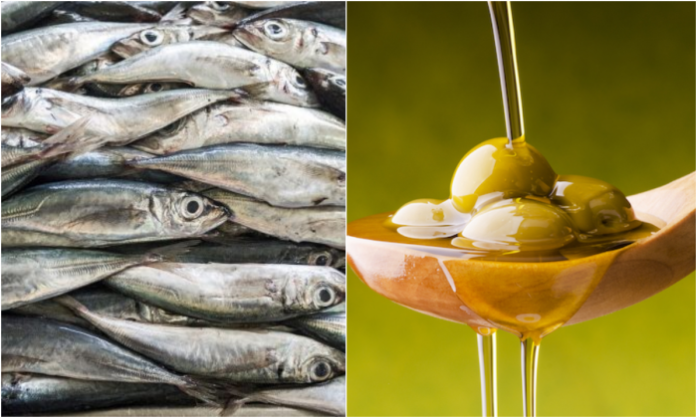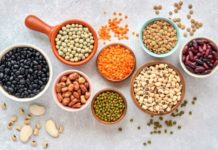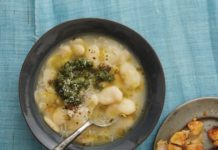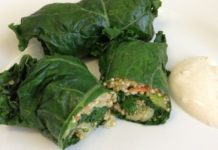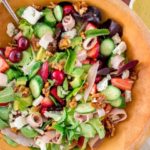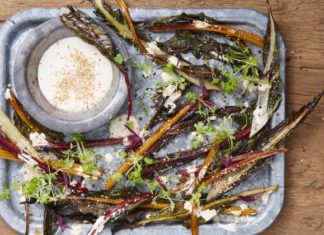During the low-fat craze, many of us stopped eating some of our favorite foods because we were afraid of becoming overweight and sick. Unfortunately, many people ended up eating more sugar, refined carbs, and processed foods instead. As a result, they became overweight and sick nonetheless.
In the 2015-2020 Dietary Guidelines for Americans, the US Departments of Agriculture and Health and Human Services removed the limit on total fat consumption in the American diet. This is because, in their own words, eating more foods rich in healthful fats like nuts, vegetable oils, and fish have protective effects, particularly for cardiovascular disease. They also protect against inflammation, help you absorb a host of nutrients, and make you feel full so you eat less. Not to mention that they taste good, too.
With that in mind, here are 7 high-fat foods that you can add to your healthy diet plan without too many worries. Your taste buds may thank you in addition to your health:
1. Avocados
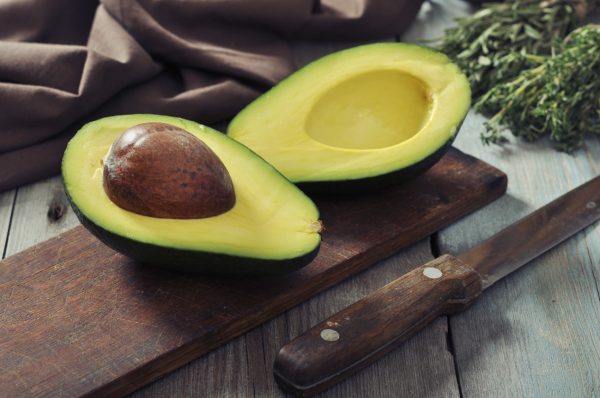
What makes avocados different from most other fruits is that whereas most fruits primarily contain carbs, avocados are loaded with fats. Although about 77 percent of the calories in an avocado come from fat, don’t shy away! Avocados are full of healthy, beneficial monounsaturated fat that help to keep you full and satiated. Most of that monounsaturated fat comes in the form of oleic acid, which has been associated with various health benefits, such as decreased inflammation and a lower risk of developing heart disease.
Avocados are also a great source of potassium—a vital mineral that your body needs to maintain normal blood pressure—transports nutrients into cells and supports healthy nerve and muscle function. Every 100g of an avocado contains 487mg of potassium. You can get 20 percent of your daily potassium needs by simply eating one avocado.
2. Extra Virgin Olive Oil
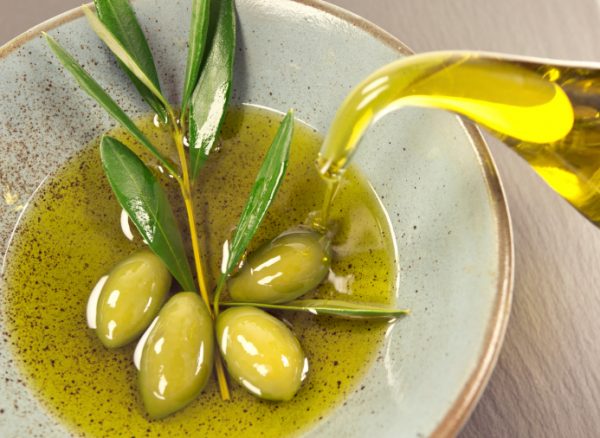
Olive oil is an indispensable ingredient of the Mediterranean diet, which almost everyone agrees is healthy. This oil is a traditional fat that has long been established as a dietary keystone for some of the world’s healthiest populations. Extra virgin olive oil is pressed from olives and standardized for purity. Without going through any chemical treatment or temperature alteration, extra virgin olive oil is able to retain a distinctive taste and smell, and is high in vitamins E and K and powerful antioxidants. Most importantly, extra virgin live oil contains oleic acid and oleocanthal, nutrients that can fight inflammation and help protect against heart attacks and strokes.
It is important to buy your EVOOs from a reputable seller. Sometimes oils that are labelled as “extra virgin” may have been adulterated with low-quality, refined oils.
3. Dark Chocolate
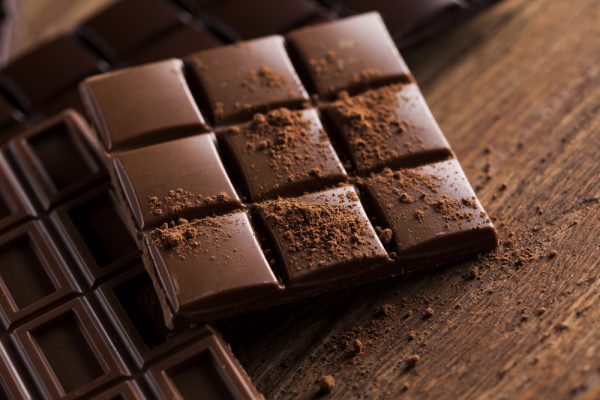
Dark chocolate is one of the few healthy foods that don’t taste nearly as bland as water. Cocoa, which is used to make chocolate, is packed with powerful antioxidants that can help lower blood pressure and manage blood sugar levels by preventing LDL (the “bad”) cholesterol in the blood from becoming oxidized. Chocolate is very high in fat, making up around 65 percent of its overall calories. The fat in chocolate comes from cocoa butter and is made up of equal amounts of stearic, palmitic, and soleic acids (the heart-healthy monounsaturated fat also found in olive oil). Although stearic and palmitic acids are saturated fats, they appear to have a negligible effect on cholesterol, neither raising nor lowering it.
While pure cocoa is best, it might be too bitter for most pallets; chocolate that is over 85 percent cocoa is preferred, while anything under 70 percent cocoa will mitigate any health gains—milk chocolate is out. Dark chocolates with sugary fillings and the like are also by no means a heart-friendly diet option either
4. Oily Fish
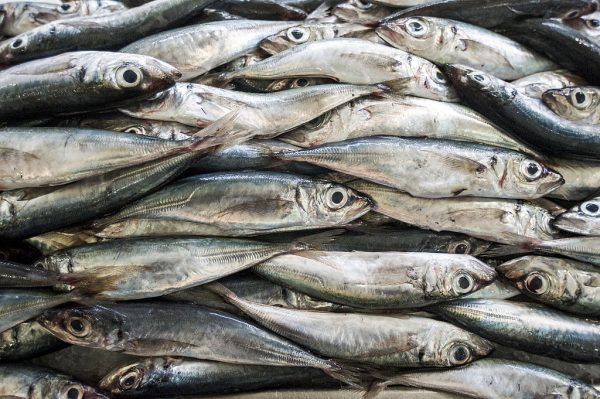
Oily fish is one of the few animal products that most people agree is healthy. These fish are best known as a “brain food” because they are loaded with brain-healthy omega-3 fatty acids. Your brain is made up of mostly fat, so you need to consume it in order to keep it sharp and healthy and fight inflammation and chronic disease. People who eat fatty fish are also tend to have a lower risk of heart disease, depression, dementia and arthritis.
You may not want to eat large fish, such as swordfish and marlin, too often, though, as trace elements of mercury accumulated in their bodies can cause illness over time. Choose smaller ones like salmon, anchovies, herring, sardines, trout, and Atlantic and Pacific mackerel (not king mackerel) and you will be fine.
5. Nuts
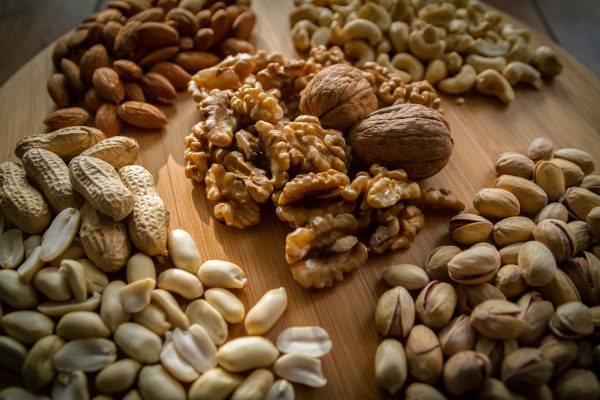
Healthy nuts include: almonds, walnuts, macadamia nuts, and numerous others. Nuts are high in healthy fats and fiber, and are a good plant-based source of protein. They are also high in vitamin E and loaded with magnesium, a mineral that most people don’t get enough of. They’re also rich in omega-3 fatty acids, which are found in many kinds of fish and can help to slow brain aging. Eating nuts may also reduce your risk of developing blood clots that can cause fatal heart attacks. Studies show that people who eat nuts tend to be healthier, and have a lower risk of various diseases including obesity, and type 2 diabetes.
As much as 80 percent of some nuts are made up of fat. Even though most of this fat is healthy fat, it’s still a lot of calories. That’s why you should eat nuts in moderation. Ideally, you should use nuts as a substitute for saturated fats, such as those found in meats, eggs, and dairy products.
6. Coconut Oil
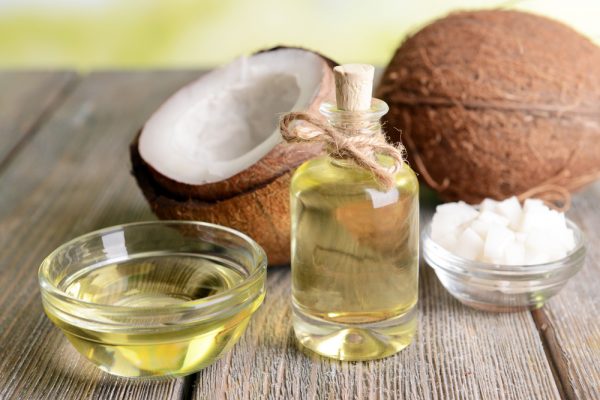
Coconuts and coconut oil, are the richest sources of saturated fat on the planet. In fact, about 90% of the fatty acids in them are saturated. Surprisingly though, populations that consume large amounts of coconut, namely the Polynesians, don’t have high levels of heart disease, and are generally in excellent health. This is largely due to the fact that coconut fats are actually different than most other fats, and consist mostly of medium-chain fatty acids. Such fatty acids are metabolized by the body in a special way, going straight to the liver where they may be turned into ketone bodies. Medium-chain fats also suppress the appetite—helping people eat fewer calories—and can boost the metabolism, burning up to 120 more calories per day.
7. Full-Fat Yogurt
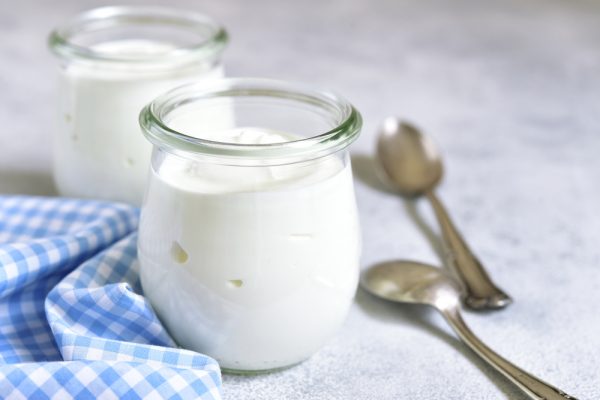
Real, full-fat yogurt is incredibly healthy. Packed with protein, calcium, and friendly bacteria, yogurt has all the makings of one of the best foods you can eat for weight loss and general health. Yogurt also contains ruminant trans fats, which are considered beneficial, unlike trans fats found in some processed food products. Ruminant trans fats in yogurt come in the form of conjugated linoleic acid (CLA), a natural fatty acid that has shown very promising results as a weight loss supplement.
Whole-milk yogurts tend to have more protein and less sugar than their leaner versions. Manufacturers tend to add extra sugar and artificial ingredients to non-fat diary products to compensate flavor loss. Just make sure to read the label carefully and choose real, full-fat yogurt. Use full-fat yogurt to replace other animal products that are high in saturated fat if you worry about eating too much of that.
Disclaimer: This article is for informational purposes only and is not a substitute for professional medical advice. Always consult your doctor or a dietician before making any changes to your diet.


